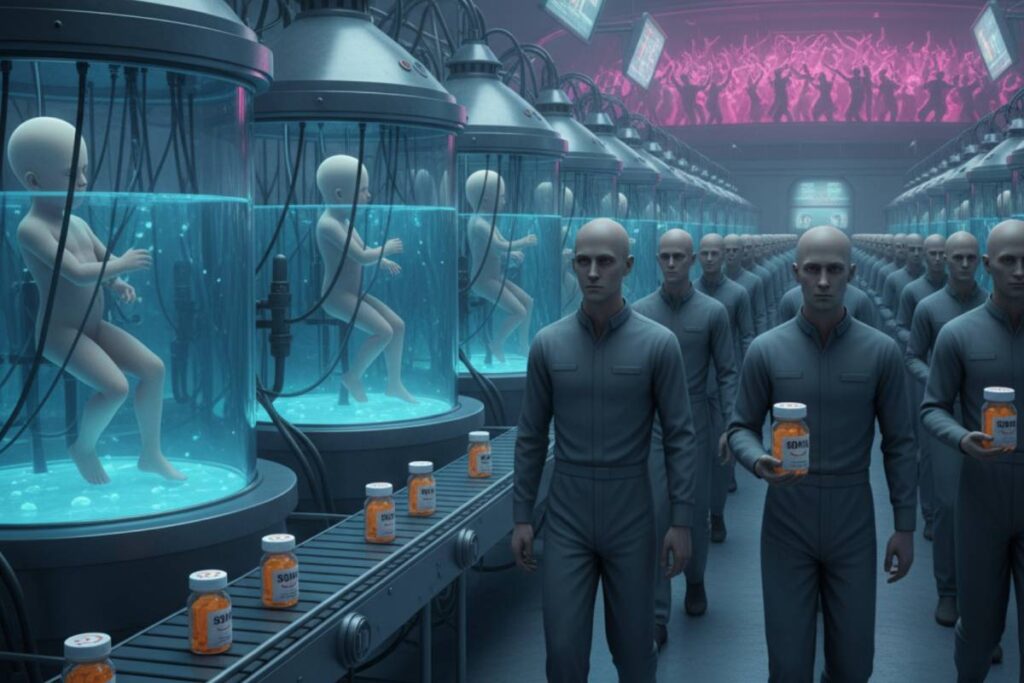
Aldous Huxley’s Brave New World (1932) a vision of the future — a society where people are created in laboratories, programmed for obedience, consumption and meaningless entertainment, and kept happy with the drug “soma.” A dystopia without war, without suffering — but also without meaning, love, or thought.
Almost a hundred years later, the question remains relevant: how much of this vision has come true?
What has come true
![]() Artificial reproduction and genetic control
Artificial reproduction and genetic control
Artificial insemination, gene editing, and talk of “designer babies” show that humanity is approaching a point where natural birth is no longer the only norm.
Control over biology is no longer science fiction — it is reality.
![]() Mass entertainment and attention control
Mass entertainment and attention control
Huxley envisioned a society that is satisfied with entertainment rather than fear.
Social networks, a constant stream of content, and superficial content are today’s “satisfaction mechanisms”.
![]() The drug “soma” — artificial happiness
The drug “soma” — artificial happiness
There is no single miracle cure, but there are equivalents — alcohol, antidepressants, sedatives, and digital addictions that allow us to avoid thinking about the meaning of life.
![]() Consumption as the meaning of life
Consumption as the meaning of life
Consumer society has become the norm: the economy is based on the desire to buy or replace.
Stability is maintained by consumption, not thinking — just as Huxley predicted.
![]() Simplification of thinking
Simplification of thinking
Short content, rapid shifts in attention, superficial emotions — people are less and less likely to delve into what is going on around them.
Thinking has been replaced by “scroll” and “like.”
What hasn’t come true
![]() Complete human creation and class system
Complete human creation and class system
We are still born naturally, and classes are not biologically programmed.
Inequality exists, but it is not the result of laboratory experiments.
![]() Absolute control of the human inner world
Absolute control of the human inner world
People still have personality, creativity, and a spirit of resistance.
No system has yet been able to completely control the human inner world.
![]() Prohibition of love and family
Prohibition of love and family
Society is freer than ever — people choose for themselves how to live and with whom to be.
There is no central authority that sets limits on emotions.
![]() A unified world government
A unified world government
The world is still fragmented — politically, economically and culturally.
There is no single ideology that rules over everyone.
![]() Complete stability and technological peace
Complete stability and technological peace
Wars, environmental problems, disease, and poverty still exist.
Technology is powerful, but humanity has not yet found balance.
Huxley did not foresee a totalitarian regime like Orwell, but rather voluntary submission to comfort. And in this he was quite accurate.
We are not yet in the “World State”, but we are approaching its spirit — a world where people willingly trade freedom for ease and replace thinking with entertainment.
The brave new world is not the future — it is the present.